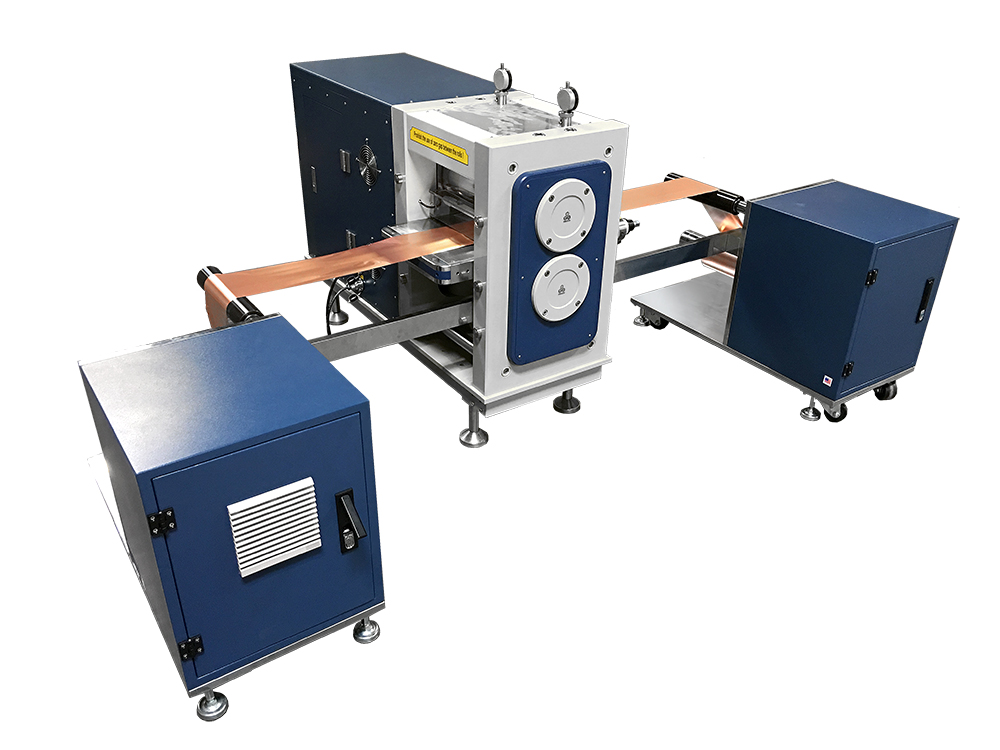- Battery Manufacturing Equipment
- Battery Laboratory Assembly Equipment
- Battery Pack Assembly Equipment
- Sodium Ion Battery Manufacturing Equipment
- Solid State Battery Assembly Line
- Dry Electrode Assembly Equipment
- Supercapacitor Assembly Equipment
- Perovskite Solar Cell Lab Equipment
- Li ion Battery Materials
- Ni / Al / Cu Metal Foam
- Customized Electrode
- Cathode Active Materials
- Anode Active Materials
- Coin Cell Parts
- Lithium Chip
- Cylindrical Cell Parts
- Battery Current Collectors
- Battery Conductive Materials
- Electrolyte
- Battery Binder
- Separator and Tape
- Aluminum Laminate Film
- Nickel Strip/Foil
- Battery Tabs
- Graphene Materials
- Cu / Al / Ni / Stainless steel Foil
- Battery Laboratory Equipment
- Li ion Battery Tester
- Battery Safety Tester
- Battery Material Tester
- Film Coating Machine
- Rolling Press Machine
- Electrode Mixer
- Coin Cell Crimping Machine
- Coin Cell Electrode Disc Punching
- Pouch Cell Sealing Machine
- Pouch Cell Stacking Machine
- Pouch Cell Forming Machine
- Pouch Cell Ultrasonic Welder
- Pouch Cell Electrode Die Cutter
- Cylinder Cell Sealing Machine
- Cylinder Cell Grooving Machine
- Electrode Slitting Machine
- Cylinder Cell Winding Machine
- Cylinder Cell Spot Welding Machine
- Electrolyte Filling
- Type Test Cell
- Other Battery Making Machine
- NMP Solvent Treatment System
- Vacuum Glove Box
- Lab Furnaces
- Ball Mill
- Hydraulic Press
- Laboratory Equipment
- 2024-02-21
Electrode calendering machines play a crucial role in the production of lithium-ion batteries, specifically in the manufacturing process of the electrodes. Here's an explanation of the usage and significance of an electrode calender:
1. Definition of Calendering:
Calendering is a mechanical process used to compress and smooth surfaces. In the context of electrode manufacturing, it involves passing the coated electrode materials (anode and cathode) through rollers under high pressure to achieve the desired thickness and density.
2. Thickness and Density Optimization:
The primary function of the roll to roll calender is to optimize the thickness and density of the coated electrode materials. This step is critical because the performance of a lithium-ion battery is closely tied to the characteristics of its electrodes.
3. Uniformity Enhancement:
Electrode calendering ensures the uniform distribution of electrode materials, which is essential for maintaining consistent electrochemical performance across the surface of the electrode. This uniformity contributes to the overall efficiency and reliability of the battery.
4. Porosity Control:
Calendering helps control the porosity of the electrode. The level of porosity affects the battery's ability to store and release energy. By calendering the electrodes, manufacturers can precisely control the porosity to optimize performance.
5. Improved Electrode Structure:
The mechanical pressure applied during calendering enhances the structural integrity of the electrodes. This is important for the electrodes to withstand the stresses of charge and discharge cycles during the battery's operational life.
6. Enhanced Electrical Conductivity:
Calendering aids in improving the electrical conductivity of the electrode materials. This is crucial for facilitating the flow of electrons within the electrodes, contributing to the overall efficiency of the battery.
7. Consistency in Battery Production:
The use of electrode calendering machines ensures consistency in the production process. By precisely controlling the thickness and density of electrode materials, manufacturers can replicate desired characteristics in each battery, reducing variations between units.
8. Impact on Battery Performance:
The optimized electrodes produced by calendering positively impact the overall performance of lithium-ion batteries. Batteries with well-calendered electrodes tend to exhibit better energy density, cycle life, and rate capability.
9. Integration into Battery Manufacturing Line:
Electrode calendering machines are typically integrated into a larger battery manufacturing line. They are positioned after the coating process, where electrode materials are applied to the current collectors, and before the final assembly of the battery.
10. Industry Standards and Quality Control:
- The usage of electrode calendering machines aligns with industry standards and quality control measures. It allows manufacturers to meet specific performance criteria and ensures that batteries meet the required standards for various applications.
In summary, the electrode calendering machine is a critical component in the production of lithium-ion batteries. Its usage is essential for optimizing electrode characteristics, ensuring consistency in battery production, and contributing to the overall efficiency and reliability of the final energy storage devices.
-
 Automatic Cylinderical Battery Electrode Winding Machine
Read More
Automatic Cylinderical Battery Electrode Winding Machine
Read More
-
 100-200L Double Planetary Vacuum Mixing Machine for Lithium Battery Slurry
Read More
100-200L Double Planetary Vacuum Mixing Machine for Lithium Battery Slurry
Read More
-
 Large Heating Roller Press Machine Calender For Li ion Battery Production Line
Read More
Large Heating Roller Press Machine Calender For Li ion Battery Production Line
Read More
-
 Large 3 Rollers Battery Electrode Film Intermittent Coating Machine for Pilot Production Line
Read More
Large 3 Rollers Battery Electrode Film Intermittent Coating Machine for Pilot Production Line
Read More
-
 512 Channel 5V3A Battery Grading Machine/Battery Charge Discharge Machine Tester
Read More
512 Channel 5V3A Battery Grading Machine/Battery Charge Discharge Machine Tester
Read More
 ru
ru


 cindy@tmaxcn.com
cindy@tmaxcn.com David@battery-equipments.com
David@battery-equipments.com Wechat:13506084915
Wechat:13506084915